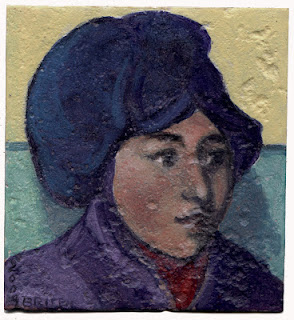4780. Several people came up to me on the station platform to see if I was all right. I calmed down. I said, “My mother has recently died, that is why I am crying like this, but never mind".
4781. People seemed to accept my explanation with sympathy, and a few minutes later we boarded another train. Later, in the hotel, I looked up the passage in "Crime and Punishment," that this incident had reminded me of. Here is what I found, on the first page of Part 2, chapter 6:
4782. From "Crime And Punishment:" From old habit he took his usual walk in the direction of the Hay Market. A dark-haired young man with a barrel organ was standing in the road in front of a little general shop and was grinding out a very sentimental song.
4783. From "Crime And
Punishment:" He was accompanying a girl of fifteen, who stood on the
pavement in front of him. She was dressed up in a crinoline, a mantle and a
straw hat with a flame-colored feather in it, all very old and shabby.



















































